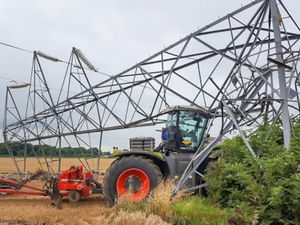Wildlife group critical of badger cull plans
Government plans to cull badgers were today criticised by the Shropshire Wildlife Trust, which labelled the move 'counter-productive'.
A trial cull of thousands of badgers will go ahead over the coming weeks in Somerset and Gloucestershire after the Court of Appeal rejected a legal challenge from wildlife supporters.
The decision has been welcomed by Shropshire's farming union leader as the best way to fight the rise of tuberculosis in cattle, which cost taxpayers £100 million last year.
North Shropshire MP and new Environment Secretary Owen Paterson has also backed the move, saying it is the only way the issue could be addressed until a vaccine is developed.
Farmers say bovine TB is the biggest threat to the beef and dairy industries and they blame badgers for spreading the disease.
But Helen Trotman, of Shropshire Wildlife Trust, said the cull could lead to an increase in disease.
"Culling is likely to be counter-productive and could even result in an increase, as infected badgers disperse from settled communities, panicked by shooting," she said.
She said the wildlife trust was 'deeply conscious' of the hardship suffered by farmers affected by bovine TB in their cattle herds but said several trusts, including Shropshire, were exploring ways of controlling the disease.
The trust will start a five-year programme of badger vaccination on one of its nature reserves in the north of the county this autumn, alongside a similar project just over the border run by Cheshire Wildlife Trust.
"Our work will be monitored by the Animal Health Veterinary Laboratories Agency to assess its effectiveness. Through this project, we hope to make a real contribution to solving the problem of bTB based on scientific principles," she said.
"We believe strategic use of badger vaccination could play a significant role in creating a firebreak.
"Our project will provide local benefit, while the willingness of other landowners to trial vaccination will extend the possibilities of controlling the spread of this disease."





